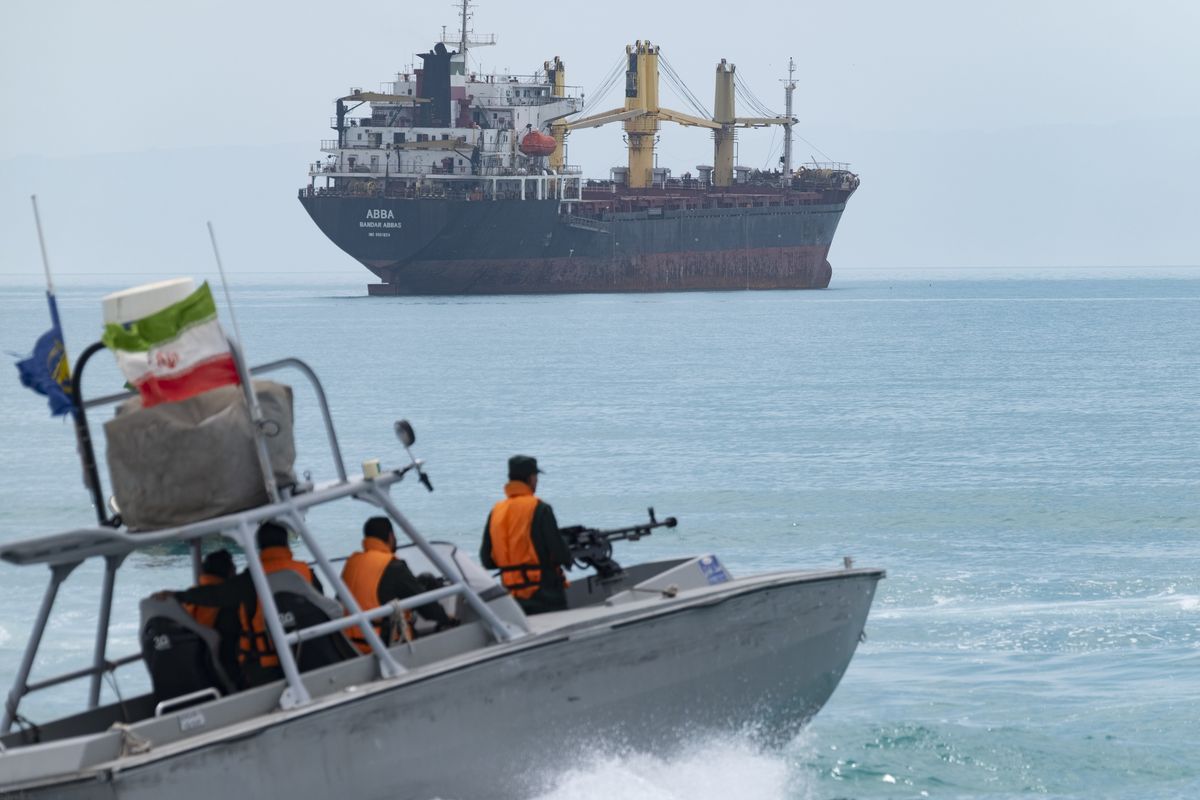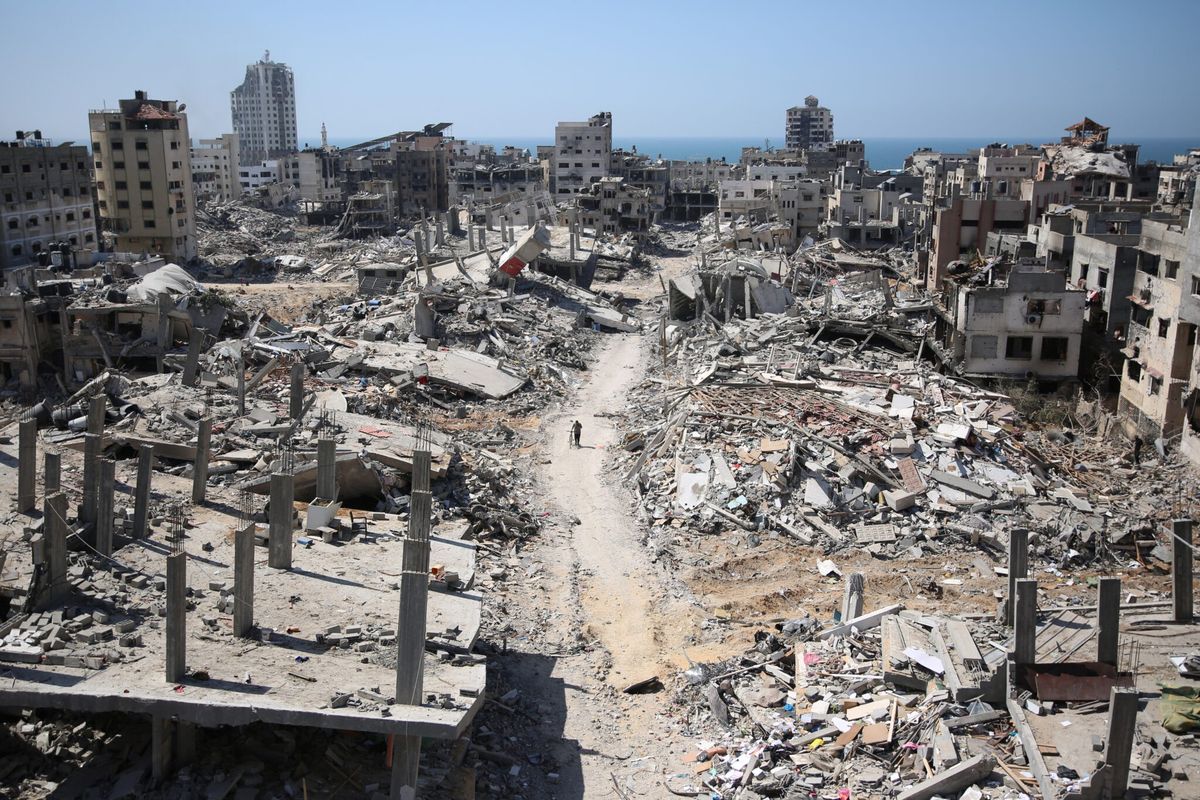With a new administration set to enter the White House early next year, there is hope for a renewal of the Israeli-Palestinian peace process. One of the key players who will play a role in any potential negotiations, Hamas, is set to undergo an election of its own in the coming months, and the stakes could not be higher.
In July, reports circulated that Hamas’ longtime leader and Political Bureau Chief, Khaled Mashal, would not seek reelection after serving in his post for 20 years. “Mashal has been slowly losing influence,” explained Rob Richer, Cipher Brief expert and former Associate Deputy Director for Operations at the CIA. “He lives in Qatar, may be viewed as a tool of the Qatari government, and has become less identifiable to the people on the streets of Gaza. So there was an internal push for change,” he continued.
Who will succeed Mashal has been the focal point of debate within the Hamas movement, with many pointing to Ismail Haniyeh, the Deputy Leader and Moussa Mohammed Abu Marzouk, the Deputy Political Bureau Chief, as the two leading candidates. Haniyeh served as Prime Minister of Hamas from 2006-2014 and remains Hamas’ political leader in Gaza. His presence in Gaza enables him to directly speak to Hamas’ constituents and stay more in tune with the needs of the Gazan population.
Marzouk, who has been described as Hamas’ number two leader behind Mashal, maintains a residence in Cairo and has the ability to travel and advocate on behalf of Hamas outside of the Gaza strip, where travel restrictions are often severe.
In addition to shifting internal affairs, Hamas’ neighbor, Egypt, has worked to close off smuggling tunnels along the Egypt-Gaza border, further tightening the economic noose around Gaza’s neck. Tensions between the Egyptian government and Hamas have further isolated the group and have placed increasing pressure on the Hamas government to deliver for the people of Gaza.
Hamas, an Arabic acronym meaning the Islamic Resistance Movement, was founded in 1987 by Sheik Ahmed Yassin during the first intifada, or Palestinian uprising, against Israel. The organization’s roots can be traced to its parent organization, Egypt’s Muslim Brotherhood. The group views itself as “one of the wings of Muslim Brotherhood in Palestine” and receives substantial funding and supplies from Iran.
Hamas assumed control over the Gaza Strip following Israel’s withdrawal from the territory in 2005 and the organization’s victory in the 2006 Palestinian elections. The group has frequently butted heads with the internationally recognized Palestinian government, the Fatah-led Palestinian Authority in the West Bank, which has contributed to the stark divide within Palestinian politics. As part of a reconciliation effort in 2014, Ismail Haniyeh stepped down from his post as Prime Minister and pledged allegiance to a unity government comprised of both Hamas and Fatah.
Under Hamas leadership, living conditions for Gazan residents have remained abysmal. The U.S. State Department designated Hamas as a Foreign Terrorist Organization in 1997 and the U.S. Treasury Department has implemented sanctions on major Hamas leaders and “charity” organizations affiliated with Hamas. Israel maintains a blockade over all imported goods into Gaza in order to ensure that no weapons or other materials that could be used to attack Israel can be transported into the area.
Furthermore, Hamas’ engagement in several armed conflicts with Israel including major clashes in 2008, 2012, and 2014, has taken a dire toll on the Gazan population, as significant amounts of Gaza’s infrastructure has been destroyed in the confrontations.
Such factors have led some, including Mashal, to question Hamas’ ability to effectively govern the Gaza Strip.
“Hamas made a mistake when it thought it was easy for it to rule the Gaza Strip alone following the Palestinian division with Fatah in the wake of its victory in the 2006 parliamentary elections,” said Mashal at a dialogue session on shifts in Islamic movements held in Qatar in late September. “It thought that ruling Gaza would be easy, but discovered that it was hard.”
Looking toward the upcoming Hamas elections, the prospects are grim that any new leader will alter the organization’s trajectory, ideology, or tactics.
“The election of new Hamas leadership could theoretically provide the movement with an opportunity to reset its regional alliances,” explained Ghaith al-Omari, Cipher Brief expert and Senior Fellow at the Washington Institute for Near East Policy. “Yet the rivalries and competing interests between Hamas’ various components create a dynamic that makes such realignment unlikely.”
With an Israeli Prime Minister taking a hardline on future talks with the Palestinians, and with Palestinian politics in flux, it seems improbable that a peace process initiated early on by a new American administration would gain much traction. “The peace process is going nowhere, and it’s the fault of all parties involved,” says Richer.
Bennett Seftel is the Deputy Director of Editorial at The Cipher Brief. Follow him on Twitter @BennettSeftel.












